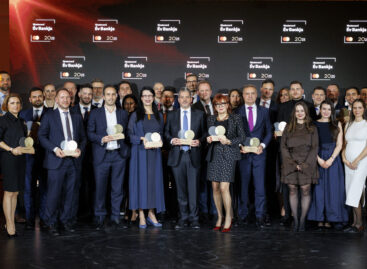GKID-Mastercard: the momentum of domestic e-commerce seems to be running out, while Chinese webshops are also conquering Hungary
The GKID-Mastercard Digital Commerce Survey reveals a challenging landscape for domestic e-commerce in Hungary as global competition intensifies. The 2024 edition of the report underscores the slowing momentum in the Hungarian e-commerce sector, exacerbated by the economic downturn and the rise of Chinese e-retailers, which have gained significant market share both locally and across the European Union.
 In 2023, the number of online orders served by domestic web stores barely increased by 7%, reaching over 83 million, with a total value of approximately 1,474 billion forints. This growth pales in comparison to the explosive expansion seen during the COVID years, highlighting a significant slowdown that continued into the first quarter of 2024, which saw a mere 6% increase in transaction volume year-over-year.
In 2023, the number of online orders served by domestic web stores barely increased by 7%, reaching over 83 million, with a total value of approximately 1,474 billion forints. This growth pales in comparison to the explosive expansion seen during the COVID years, highlighting a significant slowdown that continued into the first quarter of 2024, which saw a mere 6% increase in transaction volume year-over-year.
The report highlights the formidable presence of Chinese e-commerce giants like Temu and Shein, which have revamped their logistics to offer faster, duty-free shipping routes to European customers following EU customs regulation changes in 2021. This has allowed them to deliver products at significantly lower prices and higher service levels, appealing to price-sensitive consumers across Europe, who have increasingly turned to these platforms for more affordable shopping options.
Hungarian retailers face multiple challenges, including rising advertising costs and shrinking consumer purchasing power. The GKID-Mastercard survey indicates that 61% of local e-merchants are particularly concerned about the increasing cost of advertising, and many feel the pinch from both decreased domestic demand and intense competition from international players.
The survey also addresses the evolving delivery methods in Hungary’s e-commerce landscape, noting a sharp increase in the use of parcel lockers. As of April 2024, approximately 5,150 parcel lockers were operational nationwide, facilitating a 191% increase in e-commerce volume delivered via this method compared to home delivery growth of only 23%.
Furthermore, payment trends are shifting. In 2023, 59% of online orders were paid for upon delivery, with cash payments slightly increasing—a sign of ongoing economic strain. However, international transactions are predominantly electronic, reflecting a broader move toward digital payment solutions spurred by global e-commerce practices.
The study concludes with a focus on cybersecurity, noting that 24% of Hungarian e-merchants experienced some form of cyberattack, a concern that is increasingly prevalent across the global digital economy.
Overall, the GKID-Mastercard Digital Commerce Overview paints a picture of a highly competitive market environment where local Hungarian businesses must innovate and adapt to stay relevant in the face of global e-commerce giants and changing consumer behaviors.
Related news
Inflation has dropped significantly, a cycle of interest rate cuts may begin, while gold soars
🎧 Hallgasd a cikket: Lejátszás Szünet Folytatás Leállítás Nyelv: Auto…
Read more >New customs rules for imported parcels
🎧 Hallgasd a cikket: Lejátszás Szünet Folytatás Leállítás Nyelv: Auto…
Read more >OTP Bank won the grand prize of the 20th Mastercard – Bank of the Year competition
🎧 Hallgasd a cikket: Lejátszás Szünet Folytatás Leállítás Nyelv: Auto…
Read more >Related news
Festival buzz at the 60th anniversary EuroShop trade fair
🎧 Hallgasd a cikket: Lejátszás Szünet Folytatás Leállítás Nyelv: Auto…
Read more >Historic price reduction at ALDI
🎧 Hallgasd a cikket: Lejátszás Szünet Folytatás Leállítás Nyelv: Auto…
Read more >








